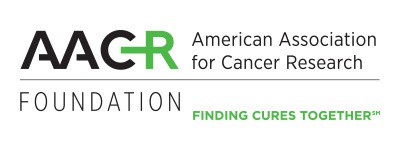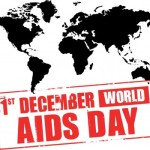NBC News Cameraman Comes Down with Ebola
A free-lance cameraman working for NBC News has come down with Ebola virus. Ashoka Mukpo was working with NBC News Chief Medical Editor Dr. Nancy Snyderman, covering the growing Ebola epidemic from Liberia.
The NBC News team had been taking a number of precautions to avoid the disease, including washing their hands and feet with bleach, avoiding hugs or handshakes, and taking their temperature at least twice a day. Mukpo had seemed well earlier in the day, Wednesday, at a border crossing, but “as the day went on, he was starting to feel tired and a little achy,” Dr. Snyderman said. “And in the field, we work long hours so thought maybe he just wasn’t taking care of himself, and we sent him home to rest. He signed off, went home [and] called me later that evening with an elevated temperature.” The next morning he was taken to a Doctors without Borders clinic, where he tested positive for Ebola.
NBC News plans to fly Mukpo and the rest of the NBC News team back to the US. Mukpo will be treated here and the rest of the team will voluntarily be in isolation for 21 days. Snyderman says the risk to the American public will be “nearly zero”.
“We want to be respectful to our colleagues and the U.S. public. Because we know this is not a casually transmitted disease and because we don’t have any symptoms, we present zero to minimal risk. Our returning to the U.S. is a very, very minimal chance of getting anyone [else] sick.”
This news comes on the heels of the first case of Ebola being diagnosed in the US. Thomas Eric Duncan was diagnosed with Ebola Sunday Sept. 28, about a week after returning to the US. Duncan had direct contact with a pregnant woman stricken with Ebola on September 15, days before he left for the United States. Duncan had been seen at Texas Health Presbyterian Hospital Dallas 3 days earlier with “low grade fever and abdominal pain” and was sent home. He returned when his symptoms became severe and he tested positive for Ebola.
Health officials, including the CDC (Centers for Disease Control) are trying to figure out (1) if Duncan did not reveal to Liberian airport officials that he was exposed to a sick individual and (2) why the history of his foreign travel was not shared with the entire healthcare team at the Texas hospital, allowing him to be sent home after the first visit. They are also tracking down any individuals who may have come in contact with Duncan while he was ill. CDC Director Dr. Tom Frieden, M.D., M.P.H. in an attempt to allay public concerns said in a statement:
“Ebola can be scary. But there’s all the difference in the world between the U.S. and parts of Africa where Ebola is spreading. The United States has a strong health care system and public health professionals who will make sure this case does not threaten our communities. While it is not impossible that there could be additional cases associated with this patient in the coming weeks, I have no doubt that we will contain this.”
The rest of Duncan’s family remains in isolation at their apartment and must remain there for the rest of the 21 day incubation period. Questions have been raised, however, about the delayed sanitization of that apartment by the appropriate authorities.
Here are the current CDC recommendations on Ebola:
How do I protect myself against Ebola?
If you must travel to an area affected by the 2014 Ebola outbreak, protect yourself by doing the following:
- Wash hands frequently or use an alcohol-based hand sanitizer.
- Avoid contact with blood and body fluids of any person, particularly someone who is sick.
- Do not handle items that may have come in contact with an infected person’s blood or body fluids.
- Do not touch the body of someone who has died from Ebola.
- Do not touch bats and nonhuman primates or their blood and fluids and do not touch or eat raw meat prepared from these animals.
- Avoid hospitals where Ebola patients are being treated. The U.S. Embassy or consulate is often able to provide advice on medical facilities.
- Seek medical care immediately if you develop fever (temperature of 101.5°F/ 38.6°C) and any of the other following symptoms: headache, muscle pain, diarrhea, vomiting, stomach pain, or unexplained bruising or bleeding.
- Limit your contact with other people until and when you go to the doctor. Do not travel anywhere else besides a healthcare facility.
CDC has issued a Warning, Level 3 travel notice for three countries. U.S. citizens should avoid all nonessential travel to Guinea, Liberia, and Sierra Leone. CDC has issued an Alert, Level 2 travel notice for Nigeria. Travelers to Nigeria should take enhanced precautions to prevent Ebola. CDC has also issued an Alert, Level 2 travel notice for the Democratic Republic of the Congo (DRC). A small number of Ebola cases have been reported in the DRC, though current information indicates that this outbreak is not related to the ongoing Ebola outbreaks in Guinea, Liberia, Nigeria and Sierra Leone. For travel notices and other information for travelers, visit the Travelers’ Health Ebola web page.
Can hospitals in the United States care for an Ebola patient?
Any U.S. hospital that is following CDC’s infection control recommendations and can isolate a patient in their own room with a private bathroom is capable of safely managing a patient with Ebola.
What is being done to prevent ill travelers in West Africa from getting on a plane?
In West Africa
CDC’s Division of Global Migration and Quarantine (DGMQ) is working with airlines, airports, and ministries of health to provide technical assistance for the development of exit screening and travel restrictions in the affected areas. This includes:
- Assessing the ability of Ebola-affected countries and airports to conduct exit screening,
- Assisting with development of exit screening protocols,
- Training staff on exit screening protocols and appropriate PPE use, and
- Training in-country staff to provide future trainings.
During Travel
CDC works with international public health organizations, other federal agencies, and the travel industry to identify sick travelers arriving in the United States and take public health actions to prevent the spread of communicable diseases. Airlines are required to report any deaths onboard or ill travelers meeting certain criteria to CDC before arriving into the United States, and CDC and its partners determine whether any public health action is needed. If a traveler is infectious or exhibiting symptoms during or after a flight, CDC will conduct an investigation of exposed travelers and work with the airline, federal partners, and state and local health departments to notify them and take any necessary public health action. When CDC receives a report of an ill traveler on a cruise or cargo ship, CDC officials work with the shipping line to make an assessment of public health risk and to coordinate any necessary response.
In the United States
CDC has staff working 24/7 at 20 Border Health field offices located in international airports and land borders. CDC staff are ready 24/7 to investigate cases of ill travelers on planes and ships entering the United States.
CDC works with partners at all ports of entry into the United States to help prevent infectious diseases from being introduced and spread in the United States. CDC works with Customs and Border Protection, U.S. Department of Agriculture, U.S. Coast Guard, U.S. Fish and Wildlife Services, state and local health departments, and local Emergency Medical Services staff.
Relatively few of the approximately 350 million travelers who enter the United States each year come from these countries. Secondly, most people who become infected with Ebola are those who live with or care for people who have already caught the disease and are showing symptoms. CDC and healthcare providers in the United States are prepared for the remote possibility that a traveler could get Ebola and return to the U.S. while sick.
What do I do if I’m returning to the U.S. from the area where the outbreak is occurring?
After you return, pay attention to your health.
- Monitor your health for 21 days if you were in an area with an Ebola outbreak, especially if you were in contact with blood or body fluids, items that have come in contact with blood or body fluids, animals or raw meat, or hospitals where Ebola patients are being treated or participated in burial rituals.
- Seek medical care immediately if you develop fever (temperature of 101.5°F/ 38.6°C) and any of the following symptoms: headache, muscle pain, diarrhea, vomiting, stomach pain, or unexplained bruising or bleeding.
- Tell your doctor about your recent travel and your symptoms before you go to the office or emergency room. Advance notice will help your doctor care for you and protect other people who may be in the office.
What do I do if I am traveling to an area where the outbreak is occurring?
If you are traveling to an area where the Ebola outbreak is occurring, protect yourself by doing the following:
- Wash your hands frequently or use an alcohol-based hand sanitizer.
- Avoid contact with blood and body fluids of any person, particularly someone who is sick.
- Do not handle items that may have come in contact with an infected person’s blood or body fluids.
- Do not touch the body of someone who has died from Ebola.
- Do not touch bats and nonhuman primates or their blood and fluids and do not touch or eat raw meat prepared from these animals.
- Avoid hospitals where Ebola patients are being treated. The U.S. Embassy or consulate is often able to provide advice on facilities.
- Seek medical care immediately if you develop fever (temperature of 101.5oF/ 38.6oC) and any of the other following symptoms: headache, muscle pain, diarrhea, vomiting, stomach pain, or unexplained bruising or bleeding.
- Limit your contact with other people until and when you go to the doctor. Do not travel anywhere else besides a healthcare facility.
Should people traveling to Africa be worried about the outbreak?
Ebola has only been reported in multiple countries in West Africa (see Affected Countries). A small number of cases in Nigeria have been associated with a man from Liberia who traveled to Lagos and died from Ebola, but the virus does not appear to have been widely spread. CDC has issued a Warning, Level 3 travel notice for United States citizens to avoid all nonessential travel to Guinea, Liberia, and Sierra Leone. CDC has issued an Alert, Level 2 travel notice for travelers to Nigeria urging them to protect themselves by avoiding contact with the blood and body fluids of people who are sick with Ebola. CDC has also issued an Alert, Level 2 travel notice for the Democratic Republic of the Congo (DRC). A small number of Ebola cases have been reported in the DRC, though current information indicates that this outbreak is not related to the ongoing Ebola outbreaks in Guinea, Liberia, Nigeria, and Sierra Leone. You can find more information on these travel notices at http://wwwnc.cdc.gov/travel/notices.
CDC currently does not recommend that travelers avoid visiting other African countries. Although spread to other countries is possible, CDC is working with the governments of affected countries to control the outbreak. Ebola is a very low risk for most travelers – it is spread through direct contact with the blood or other body fluids of a sick person, so travelers can protect themselves by avoiding sick people and hospitals where patients with Ebola are being treated.
Why were the ill Americans with Ebola brought to the U.S. for treatment? How is CDC protecting the American public?
A U.S. citizen has the right to return to the United States. Although CDC can use several measures to prevent disease from being introduced in the United States, CDC must balance the public health risk to others with the rights of the individual. In this situation, the patients who came back to the United States for care were transported with appropriate infection control procedures in place to prevent the disease from being transmitted to others.
Ebola poses no substantial risk to the U.S. general population. CDC recognizes that Ebola causes a lot of public worry and concern, but CDC’s mission is to protect the health of all Americans, including those who may become ill while overseas. Ebola patients can be transported and managed safely when appropriate precautions are used.
What does CDC’s Travel Alert Level 3 mean to U.S. travelers?
CDC recommends that U.S. residents avoid nonessential travel to Guinea, Liberia, and Sierra Leone. If you must travel (for example, to do for humanitarian aid work in response to the outbreak) protect yourself by following CDC’s advice for avoiding contact with the blood and body fluids of people who are ill with Ebola. For more information about the travel alerts, see Travelers’ Health Ebola web page.
Travel notices are designed to inform travelers and clinicians about current health issues related to specific destinations. These issues may arise from disease outbreaks, special events or gatherings, natural disasters, or other conditions that may affect travelers’ health. A level 3 alert means that there is a high risk to travelers and that CDC advises that travelers avoid nonessential travel.
In the United States
Are there any cases of people contracting Ebola in the U.S.?
CDC confirmed on September 30, 2014, the first travel-associated case of Ebola to be diagnosed in the United States. The person traveled from West Africa to Dallas, Texas, and later sought medical care at Texas Health Presbyterian Hospital of Dallas after developing symptoms consistent with Ebola. The medical facility has isolated the patient. Based on the person’s travel history and symptoms, CDC recommended testing for Ebola.
CDC recognizes that even a single case of Ebola diagnosed in the United States raises concerns. Knowing the possibility exists, medical and public health professionals across the country have been preparing to respond. CDC and public health officials in Texas are taking precautions to identify people who have had close personal contact with the ill person and health care professionals have been reminded to use meticulous infection control at all times.
Is there a danger of Ebola spreading in the U.S.?
Ebola is not spread through casual contact; therefore, the risk of an outbreak in the U.S. is very low. We know how to stop Ebola’s further spread: thorough case finding, isolation of ill people, contacting people exposed to the ill person, and further isolation of contacts if they develop symptoms. The U.S. public health and medical systems have had prior experience with sporadic cases of diseases such as Ebola. In the past decade, the United States had 5 imported cases of Viral Hemorrhagic Fever (VHF) diseases similar to Ebola (1 Marburg, 4 Lassa). None resulted in any transmission in the United States.
Are people who were on the plane with this patient at risk?
A person must have symptoms to spread Ebola to others. The ill person did not exhibit symptoms of Ebola during the flights from West Africa and CDC does not recommend that people on the same commercial airline flights undergo monitoring. The person reported developing symptoms five days after the return flight. CDC and public health officials in Texas are taking precautions to identify people who have had close personal contact with the ill person and health care professionals have been reminded to use meticulous infection control at all times.



























3 Comments